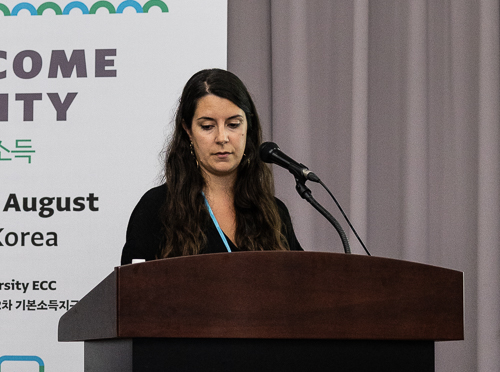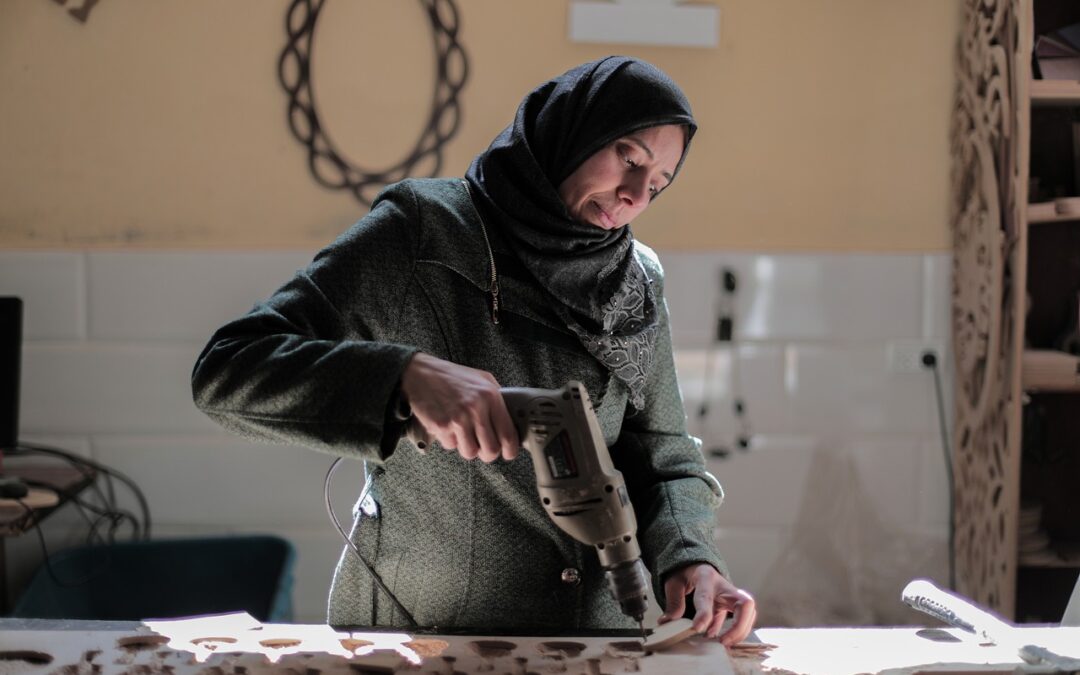
by Guest Contributor | Sep 15, 2023 | News
Aida Martinez Tinaut
Office of the Pilot Project to Implement the UBI in Catalonia
A survey was conducted in Catalonia between September and November 2022 with a total N of 3,098 which showed, among many other interesting findings, that the general catalan opinion supports the implementation of a Universal Basic Income, being the average support of 6.5.
Figure 1 shows that the support for UBI implementation is horizontal and quite high across all the parties for which the respondents have sympathy. Only two political parties gather respondents’ sympathy and the level of support for UBI implementation is below 5: PP (Popular Party) and Vox, the former being conservative and the latter being far-right.
To read the full article click here.

by Guest Contributor | Sep 8, 2023 | News
By Beau Peters, Guest Contributor
Income and mental health are integrally tied. Severe mental health disorders are 4.5 times more prevalent among children who grew up in poverty and folks who face housing insecurity are twice as likely to have a “common mental health problem,” according to the Mental Health Foundation.
Despite this, most universal income initiatives have been limited in scope and have been focused on economic productivity, rather than well-being. Countries that have trialed UBI schemes — like the U.S. and Canada — found that UBI improved wellbeing but had little impact on economic growth.
To read the full article, click here.

by Guest Contributor | Aug 14, 2023 | News
by Kelle Howson and Neil Coleman
The Institute for Economic Justice
On 27 July 2023, a group of civil society organizations in South Africa launched a major social security litigation that has the South African government’s Ministry of Social Development and the South African Social Security Agency (SASSA) as its respondents. The action aims to advance the constitutional right to social assistance for all, by compelling the government to address serious issues of exclusion and erosion in a vital pandemic-era cash transfer scheme.
The litigation is part of broader efforts to secure a universal basic income in South Africa.
Read more here.

by Guest Contributor | Jul 18, 2023 | News
by Chris Nwafor, BIEN Africa Hub Manager
The current move by the Federal Government in Nigeria to pay 12 million poor households N8,000 naira (aprox. $12) per household monthly has caught media attention. Many consider it far removed from economic realities, as the proposed amount cannot feed a child in one month, with others questioning the method used for selection and requirements for beneficiaries (Vanguard Newspaper, 13 July 2023). Comments from Sahara Reporters (an online news source) consider the policy to be economically unwise, with suspicions of a ploy by the ruling party to compensate its members at the grassroots. According to government sources, the amount will be used to scale up the national social safety net programme from a new borrowing sourced from the World Bank. To address the issues and guarantee the credibility of the process, digital transfers will be made directly to beneficiaries’ accounts and mobile wallets.
Read more

by Guest Contributor | May 30, 2023 | Opinion
While the proposition may appear daunting, the exploration of Universal Basic Income (UBI) for both Israelis and Palestinians is certainly worthwhile. Given the sustained conflicts in the region — from bombings in Gaza to raids in villages — and the current Israeli government, a unified UBI may seem implausible.
Nevertheless, a robust discussion on the potential benefits of a shared UBI program across troubled landscapes from the Mediterranean to the Jordan River is a necessity. Despite a history of failed negotiations and a prevailing sentiment of intractability, a UBI offers a novel approach to a perennial issue.
Scholars like Diana Bashur, renowned for her research on the influence of UBI in conflict-ridden areas, argue for its potential to improve social cohesion, bolster peacekeeping initiatives, strengthen social contracts, and enhance the resilience of communities. As demonstrated in her most recent work on post-war Syria, UBI might not be a panacea, but it could be a crucial step toward a more equitable society. This innovative peace-building measure, detailed extensively in Bashur’s work, ought to be considered seriously by policymakers seeking to address one of the oldest conflicts of mankind.
Imagine the application of UBI across Palestine and Israel — in Gaza, the West Bank, Jerusalem, and Haifa. This shared income would not discriminate between Palestinians and Israelis but rather assert a human right to live with dignity. Such a policy could foster a sense of shared belonging and equality, thus promoting mutual respect, regardless of religious, cultural, or ethnic differences. It would necessitate a cooperative approach from both Palestinians and Israelis, forging a partnership necessary to make UBI a success.
A harmonious social connection, coupled with non-discriminatory policies, could enhance security and decrease instances of violence. Moreover, acknowledging the human rights associated with UBI could demonstrate to even the most radical factions the shared humanity of all residents. From an economic perspective, investments into UBI could foster development and societal contribution, provided these efforts are accompanied by comprehensive security measures and advancements in healthcare and education.
Contrary to critics, such a program may not be prohibitively costly. With the successful implementation of UBI and accompanying reforms, reductions in military and security spending could be realized, thus paying for itself. The benefits of UBI in terms of lives preserved and cycles of violence broken are invaluable. Providing Palestinians, particularly those in Gaza and the occupied regions, with genuine opportunities could not only disrupt the status quo but also increase their societal contributions.
The current situation in the region, marked by loss, radicalization, and animosity, is untenable. Desires for change resonate on both sides — the Israeli protests and the widespread dissatisfaction among Palestinians are testaments to this. Therefore, despite its potential complexities, the implementation of a shared UBI could be both economically and politically feasible.
While this article merely introduces the concept of a unified UBI for Israel and Palestine, the technicalities of such a policy’s execution will be elaborated in forthcoming work.
It is not asserted here that a shared UBI would be a panacea for all the region’s problems, nor that its implementation would be straightforward. The argument presented is that a unified UBI could assure the right of all residents to a life of dignity, thus breaking the cycle of violence. Once this foundation is established, politicians can convene to debate boundaries and borders in an environment free of immediate pressure.
Written by: Ahmed Elbas
Image credit: Sawinery.net






